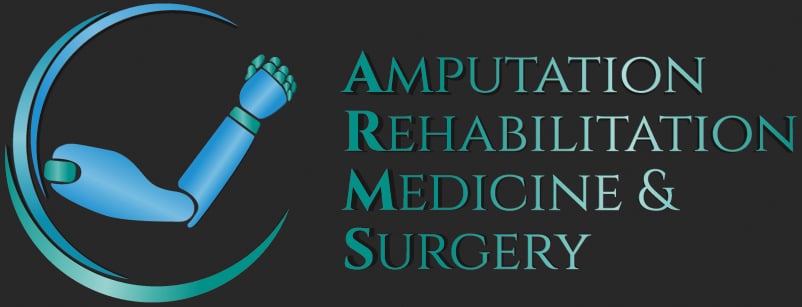Deciding Whether to Use a Prosthetic Limb
Limb loss is a life-changing event. One of the most important decisions you'll face is whether to use a prosthetic limb—a choice that can shape your recovery, mobility, and long-term independence.
At ARMS (Amputation Rehabilitation Medicine & Surgery), a specialized program of The Center for Hand and Upper Extremity Surgery (HUES) in New Jersey, we help patients evaluate all available options with the support of an expert care team.
Whether you’re considering a prosthetic for the first time or reassessing your current device, understanding your options is the first step toward living a functional and empowered life after amputation.
Benefits of Using a Prosthetic Limb
For many patients, prosthetics play a critical role in recovery and independence. A well-matched device can:
- Retrain the nervous system to adapt to your new anatomy
- Reduce phantom limb pain
- Improve balance, coordination, and strength
- Accelerate rehabilitation timelines
Modern prosthetic devices fall into four general categories:
- Aesthetic prosthetics – Designed to look natural and offer function.
- Body-powered prosthetics – Operated by shoulder or upper body motion; highly functional but often bulkier.
- Myoelectric or electronic prosthetics – Use sensors and motors for intuitive movement with minimal effort.
- Hybrid systems – Combine body-powered and electronic features to balance precision, cost, and control.
New surgical techniques like Targeted Muscle Reinnervation (TMR) and Regenerative Peripheral Nerve Interface (RPNI) are improving control and reducing post-amputation pain.
Advanced technology—including sensory-feedback systems, RFID-responsive components, and pattern recognition interfaces—continues to evolve, offering more intuitive movement and natural sensation than ever before.
Life Without a Prosthetic: Is It the Right Choice?
While most patients benefit from prosthetics, they aren’t the best fit for everyone.
You may want to consider alternatives if you:
- Lack the physical strength or coordination to use a prosthetic
- Have cognitive limitations that make device use unsafe or impractical
- Experience skin breakdown, socket discomfort, or persistent balance issues
With the right team, these challenges can often be addressed—but if not, a prosthetic-free recovery is still a valid and empowering path.
At ARMS, our multidisciplinary team—including physical and occupational therapists—helps patients build strength, master daily tasks, and maintain full independence, even without a prosthetic.
Supportive devices like residual limb cuffs, adaptive fasteners, and dressing trees can make a big difference in daily living.
Life without a prosthetic doesn’t mean giving up. It means choosing a care strategy that works for you—and our team will walk that path with you.
Key Considerations for Making Your Decision
Physical Ability
If you're unsure about your strength or readiness, talk with a prosthetist and your therapy team. In many cases, early physical therapy and proper device training can resolve functional concerns over time.
Lifestyle & Activity Level
Your job, hobbies, and daily routine matter. Whether you enjoy gardening, cooking, sports, or writing, prosthetics today can be tailored to your needs.
For patients in New Jersey and the greater Northeast, ARMS offers custom solutions and training protocols to help you adapt confidently—whether or not you choose a device.
Emotional Readiness
It’s normal to feel overwhelmed. Body image, identity, and fear of the unknown often play a role in this decision. We offer psychosocial support and peer mentorship to help you make your choice with clarity and confidence.
Cost and Insurance
Some devices can be expensive and require authorization. We help patients navigate insurance approvals and explore grants, financing, and adaptive alternatives when needed.
If affordability is a concern, the Amputee Coalition maintains a list of financial assistance programs to help offset the cost of prosthetic care.
The Role of Your Care Team in Making the Right Decision
One of the most valuable resources amputation patients have when considering prosthetic use is their care team. That's why it's so important to choose a practice, like The Center for Amputation Rehabilitation Medicine & Surgery, that offers coordinated, multidisciplinary care. With a compassionate team of specialists in amputation, prosthetics, and rehabilitation, you can explore your options from every angle and make a confident, informed decision.
For most patients, surgeons are the first professionals involved, and their surgical approach usually takes prosthetic use into consideration – particularly when the amputation is planned. In these cases, your surgeon and prosthetists will work with you before surgery to ensure the procedure supports your future mobility and functional goals.
Prosthetists are the primary professionals responsible for designing, fitting, and teaching you to use your new prosthetic. They work closely with your physical and/or occupational therapists to assess your abilities, build essential skills, and support your progress toward rehabilitation and optimal function.
It's also important to recognize that limb loss and prosthetic adaptation are not just physical challenges – they involve emotional resilience and mental strength. ARMS' holistic team includes mental health clinicians to provide emotional support as patients process the emotional challenges of amputation and recovery.
Still Unsure About Prosthetics? Let’s Talk.
Choosing a prosthetic limb—or choosing to go without—is personal, and the right answer looks different for everyone.
At ARMS, part of The Center for Hand and Upper Extremity Surgery (HUES) in New Jersey, we help you explore your options through a patient-first lens. Our expert surgeons, therapists, and prosthetists work together to build a care plan that supports your goals and your lifestyle.
Ready to explore your options? Whether you’re leaning toward a prosthetic or want to understand life without one, our ARMS team is here to help. Schedule a personalized consultation today and take the next step with confidence.
